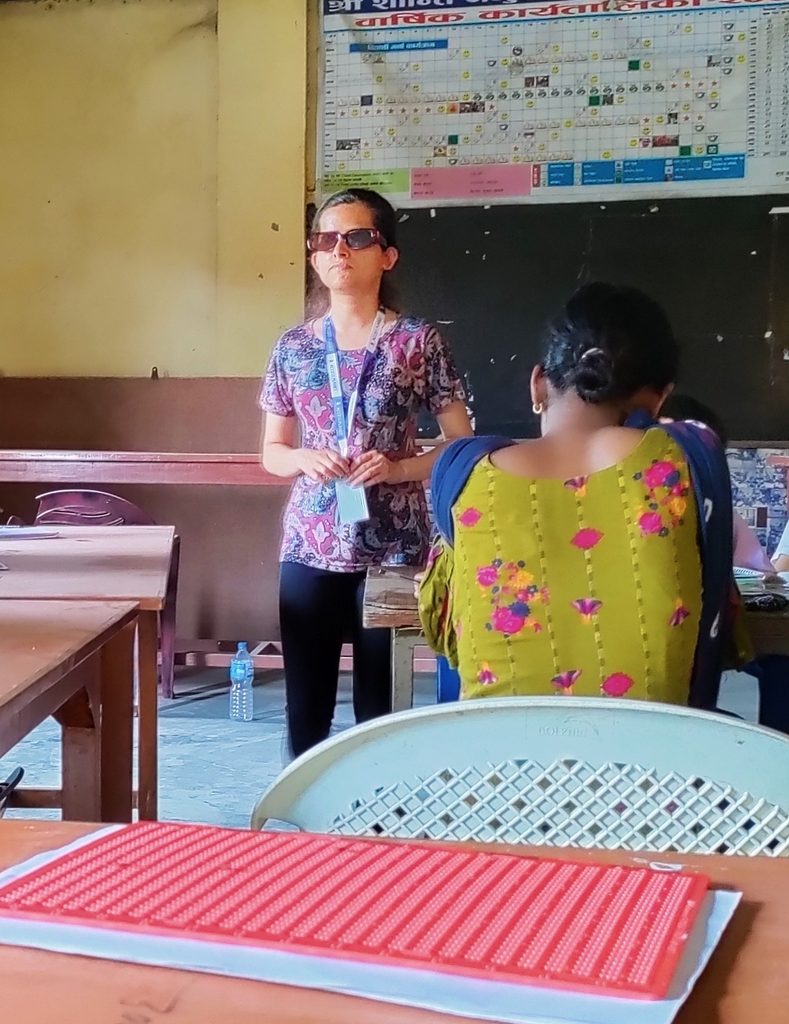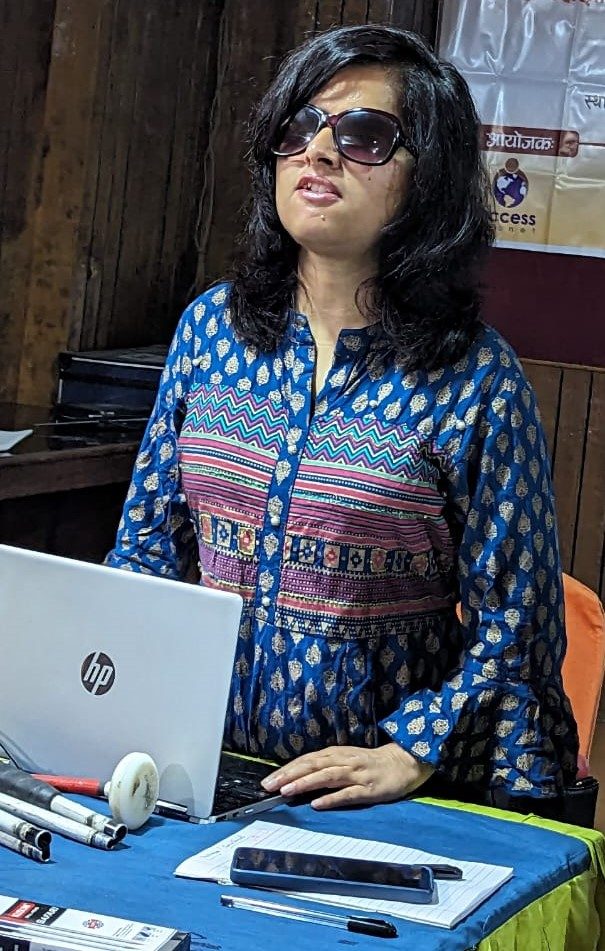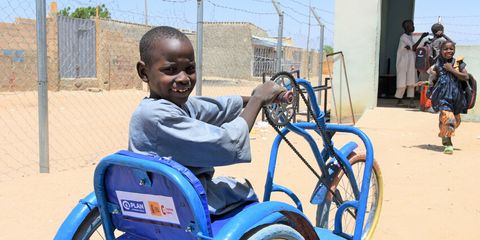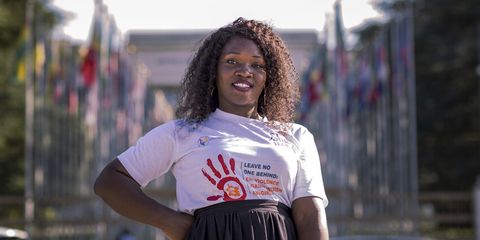Embracing diversity through inclusive education
3 December 2023This International Day of Persons with Disabilities 2023, Laxmi reflects, as a person with lived experience of disability, on navigating the Nepalese education system and shares her thoughts on the next steps to building an inclusive, quality and gender transformative education system.

I am Laxmi, a young feminist and disability rights advocate from Nepal.
I think that people do not choose to be an activist. It is social circumstances and structural inequalities which leads people, especially from underrepresented communities, to adopt this path.
Lack of resources for children with disabilities
As a blind person, I was fortunate to attend an integrated school. Integrated means blind and sighted children studying together. Currently it is also called inclusive education.
When I remember my experience of education, there were many barriers for children with visual impairments. We studied together but my sighted friends had access to all the books and resource materials, however, for me there was a complete scarcity of braille books. For examinations, I had to complete the same questions, including those with pictures and charts, despite it not being accessible. For me there was also a lack of outdoor extra-curricular opportunities, libraries and sports facilities.
“Education is a life-learning process, that should embrace inclusivity and the diversity of society from a young age.”
Laxmi
These circumstances in my teenage years made me realise that in the future I will work to solve the problems that we children with disabilities face in receiving education.
Challenges of higher education
My higher studies were even more challenging. In school, I stayed in a hostel but for higher education, I had to travel on my own to attend college, capacity building trainings etc.
As a young girl with a visual impairment, unfriendly physical infrastructure, unmanaged transportation services, a lack of awareness from people in society, and the abuse and harassment that girls and women with disabilities have to face in public places made my education settings even more complex.
“People do not choose to be an activist. It is social circumstances and structural inequalities which leads people to adopt this path.”
Laxmi
Despite these challenges, after I started to navigate independently, I started to learn about the issues of persons with disabilities in a broader sense. Realising that concerns of girls and women with disabilities are distinct, I started to get involved in organisations of women with disabilities. Before, I used to think, maybe if not quality education, at least girls and women with disabilities in Nepal are getting some form of education. However, my thoughts were proved wrong.

When I started to travel to different parts of the country, I found that many persons with disabilities, especially girls and women, are excluded from education and that those who are in education do not have access to quality education. I also saw many situations where, if there were 2 siblings with disabilities, sons were sent to school but daughters were not.
Technology that empowers
In 2015, I co-founded Access Planet Organisation with the objective of empowering girls and women with disabilities through the use of technology. We provide capacity building training on computer use, with assistive applications and technology. This technology gives girls and young women access to enhanced quality education as well as employment opportunities.
We support young women with disabilities in communities and help them to form branches or advocacy committees. Now, in many communities, girls and young women with disabilities are leading advocacy efforts to demand their rights and participation at local level. With their active involvement, local governments have started to support girls and young women with disabilities to access better education and learning opportunities.
We conduct issue identification workshops in communities, conduct visits to schools, identify challenges for girls and young women with disabilities and coordinate with local governments and educational institutions to solve these issues together.
Through our programmes the number of girls and women with disabilities accessing quality education and employment has increased significantly, and the issues of girls and women with disabilities have started to become more visible in society.
“For examinations, I had to complete the same questions, including those with pictures and charts, despite it not being accessible.”
Laxmi
Education is the key
Gender equality and quality education for all cannot be achieved without making schools and educational institutions inclusive. I strongly believe that education is key for the empowerment of all girls, including girls and women with disabilities, and education should be high-quality, inclusive, accessible and gender transformative.
Everyone has their own learning abilities and education should be able to accommodate individual needs. The world today needs to restructure its thinking and programming on education; understanding that education is not only for achieving higher competitive jobs but is a life-learning process, that should embrace inclusivity and the diversity of society from a young age. Governments and stakeholders should think outside the box on what education really is and what is its purpose.
“I found that many persons with disabilities, especially girls and women, are excluded from education.”
Laxmi
Disability inclusion and gender equality in education
At Plan International we are committed to building a world where inclusive quality education, starting with early childhood education, is a basic right for all girls and young women and no one is left behind. We work to advance gender transformative education as a means to bring gender equality and social justice to communities and societies around the world.
In celebration of International Day of Persons with Disabilities 2023, on 12:00 (GMT) December 4th, in collaboration with UNESCO, Plan International co-hosted the Disability inclusion and gender equality in education webinar where Laxmi was one of the guest speakers, sharing more of her experiences and professional insights into how we can build a more inclusive and equal educational future.
Categories: Education


